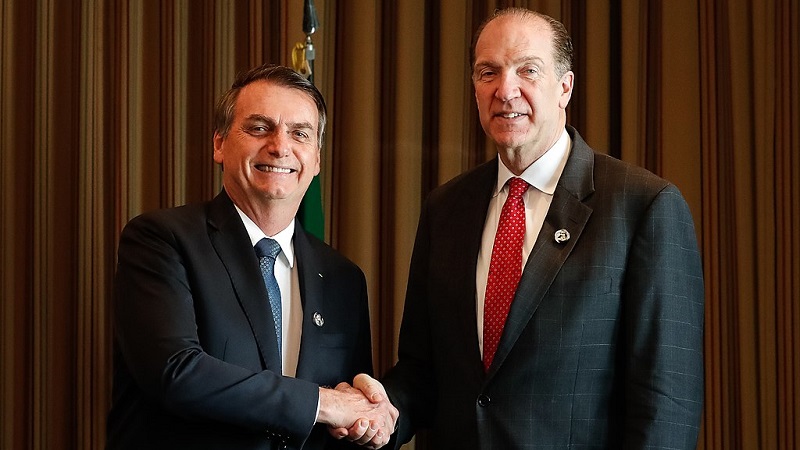David Malpass is famously “not a scientist” and this week he announced he won’t be the president of the World Bank for much longer either.
So the World Bank’s attempt to evolve into an organisation that can tackle the climate crisis will soon be led by someone who doesn’t struggle to accept that the climate crisis is happening.
He’s promised to leave by June which means he may oversee the bank’s spring meeting in April.
This week, he revealed the bank will propose then to change the equity-to-loan ratio of one of its arms from 20% to 19%.
That will free up $4bn a year, much of which will be spent on climate programmes. But it’s a tweak, not a transformation.
This week’s stories
- ECT boss accuses EU of protecting fossil fuels by blocking reforms
- World Bank proposes freeing up $4bn by loosening lending rules
- World Bank chief to step down early after climate controversy
- Study: IPCC asks emerging countries to drop coal faster than rich nations did
- UAE’s Cop28 boss calls for “course correction” on climate change
- Biden promises to “work with Congress” to fund Amazon protection
- Sponsored: Floating offshore wind is about to come of age
Transformation is what is needed, as a new study shows the scale of the climate task.
Under the IPCC’s 1.5C scenarios, the study shows that coal-reliant economies like China, India and South Africa must phase out coal faster than any country has ever phased out any energy source before.
That’s not impossible. Records are there to be broken and sometimes smashed. Ask Usain Bolt.
But we’re going to need to go fast and Malpass was dragging us back.
